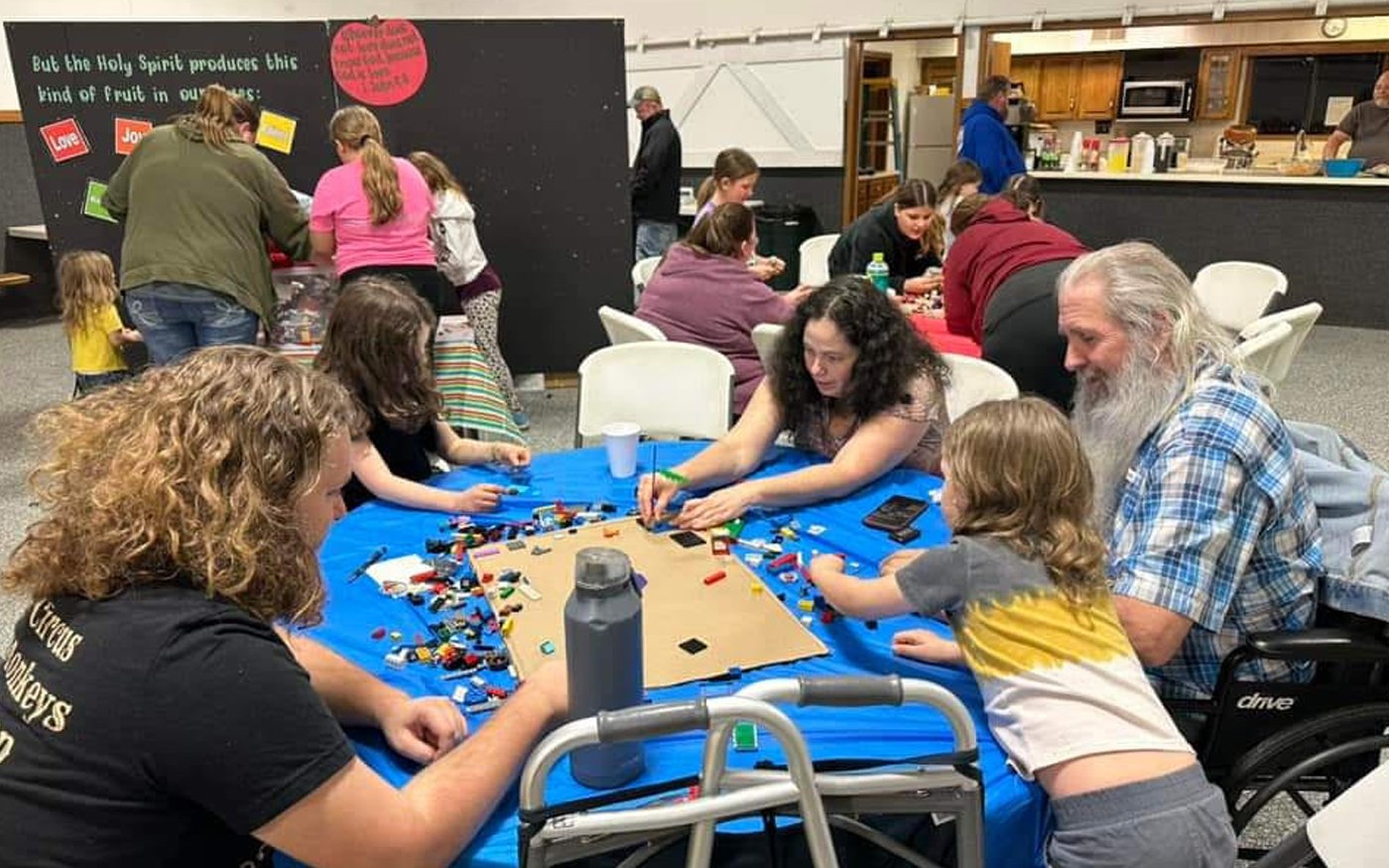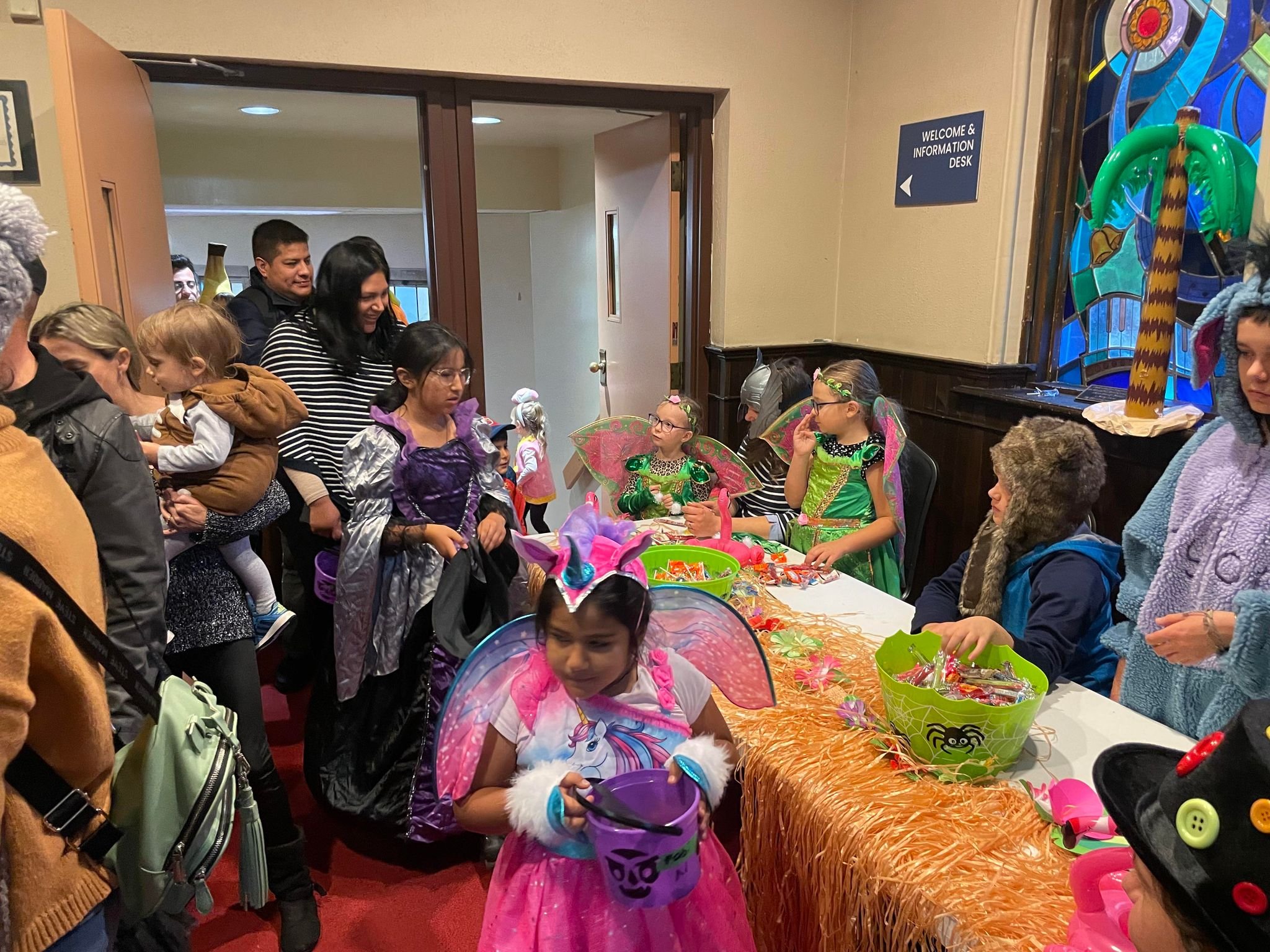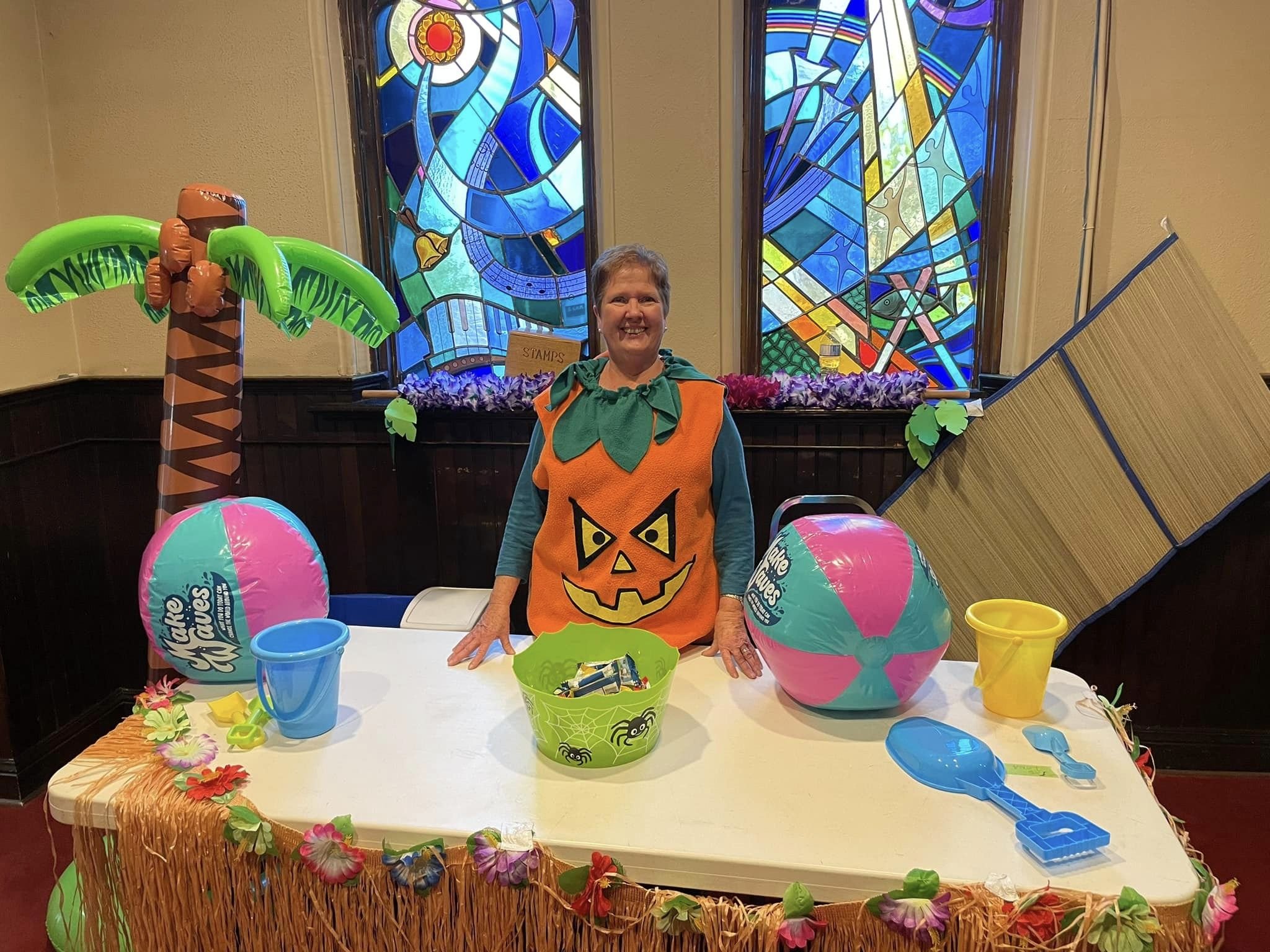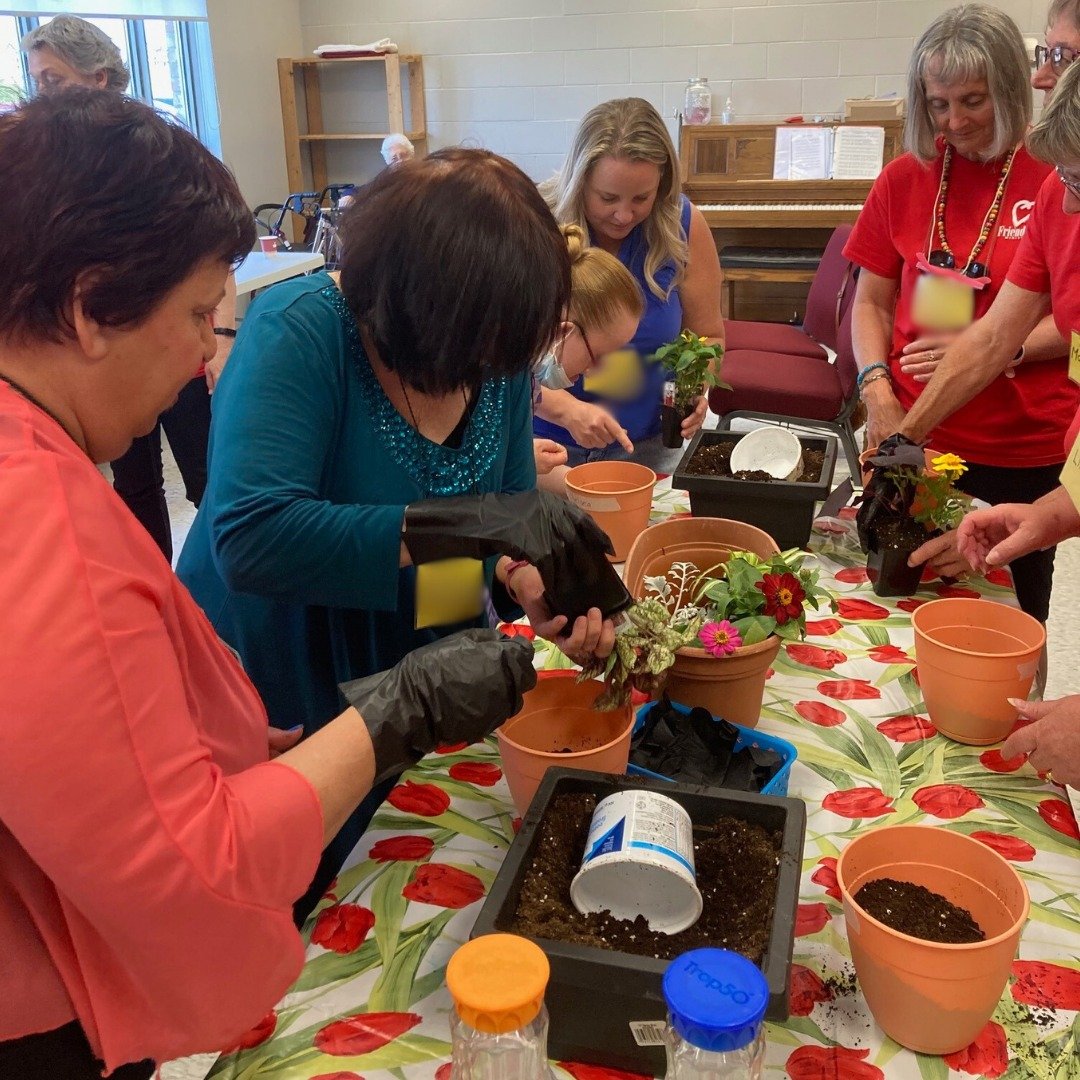Children & Youth Ministry: Embracing Change and Community
This week welcome Lauren Wasyluk as a guest writer to brings some insights and ideas surrounding the topic of Children’s Ministry. Lauren has 10 years of Children’s Ministry experience and in both reformed and evangelical settings. Most recently Lauren has joined the Ministry Forum team and works behind the scenes as the logistics and creative lead.
Navigating the evolving landscape of Children's Ministry presents a unique set of challenges and opportunities for mainline churches. Many may remember simpler times filled with crafts and colouring sheets, flannelgraph lessons and traditional Christmas pageants - the good ole days! Today those same methods don’t seem to yield the same results - children seek and need something different.
As ministry leaders, it’s our responsibility—not just to serve the children who attend, but to ensure our churches signal to every young visitor: “You belong here.”
Addressing the Challenges
In many of our congregations, the sight is all too common: sparse attendance by children and an even sparser lineup of volunteers. This scenario begs the question of the viability of Children’s Ministry. However, maintaining an intentional ministry for children and young people is crucial.
Children are not just the church of tomorrow; they are an integral part of our congregations today. Engaging them from an early age lays a foundational stone for a lifelong journey in faith, shaping their spiritual identity and worldview. Each child that finds a place of belonging in a church opens a doorway for entire families to connect more deeply with a faith community. In today’s social climate, where developing minds are bombarded with mixed messages, a stable and nurturing church environment offers them a refuge where values like kindness, empathy, and community spirit are not only taught but (hopefully) lived out.
Churches that effectively engage young people often find themselves thriving, embodying vibrant and energetic communities that attract and retain a broader demographic.
Don’t believe me?
Read the research from Fuller Youth Institute from their book Growing Young: 6 essential Strategies To Help Young People Discover and Love Your Church:
“Our research revealed that growing young can energize your entire congregation. As you navigate the waters of growing young, your other priorities… will gain momentum. If your overall hope and prayer is to have a vibrant congregation, there is arguable no better starting place than the contagious passion of teenagers and young adults.”
and
“Intergenerational relationships grow everyone young by helping them break out of silos of age and stage-based ministry and create connection across generations. Two of the most common ways churches invest in intergenerational relationships are through mentoring and corporate worship.
Want to learn more about how your church can “grow young” start here, and consider taking the church assessment survey.
By ensuring our ministries are prepared to welcome children, we communicate that our doors are open to all, reflecting our commitment to inclusivity and demonstrating our active role in shaping a welcoming community for every seeker of faith.
But Where Do we Start If We Don’t Have a Thriving Sunday School?
This is a common reality for many churches, particularly those with fluctuating or small numbers of young attendees. It's important to remember that the essence of children's ministry isn't confined to the structure of Sunday School; it's about nurturing faith and community connections in whatever format works best for your setting.
Instead of a traditional model, consider integrating children more fully into the life of the church. This can be done through "family worship" services where children are involved in the liturgy, prayers, and even in delivering short messages or testimonies. These kinds of services can help children feel a part of the congregation and understand the importance of worship in a way that is accessible and meaningful to them.
Consider how each part of your service can be “translated” or adapted to make it more accessible for younger ears. Can you take 2 minutes to explain sections of the service? Can you read from an accessible Bible translations like the Common English Bible or the New Revised Standard Version? Can you include visual elements? Can you provide spaces for wigglers or those who have trouble sitting still for long periods of time? Remember, this is about welcome, not tolerance. Finding ways to welcome and include young people should begin with a desire to meet their need for spiritual growth not simply keep them occupied and quiet.
Here are some great resources to help make Sunday mornings more accessible for children and youth:
What Is Intergenerational Ministry, and Why Does It Matter? - Blog post
Illustrated Ministry - for art and colouring that engages and teaches
The Bible Project Videos - Use these in Worship
Pray with Me Campaign - links the generations through prayer and promotes intergenerational ministry
CRC Intergenerational Church ToolKit
What It Takes: Ideas for Planning Intergenerational Worship - Reformed Worship - Blog post
Engaging Children and Youth Beyond Sunday Mornings
It’s not just about Sunday mornings though, as Brady Shearer says, “seize the 167”… in other words, take advantage of the other 167 hours in the week outside of Sunday mornings. Consider the power of event-based gatherings to capture the interest of both children and families. These can range from simple yet impactful activities like craft or Lego nights, young mom/dad drop-in times, or small group discussions where parents and children explore faith together. Each event is a unique opportunity to demonstrate faith in action!
Lego Night - Blue Springs Assembly Church, Missouri
Parent and Tot Drop in - Stanley Park Community Church - Cambridge, Ontario
Ukrainian Easter Egg Decorating Event -
St. Andrew’s Guelph, Ontario
You don’t have to do it alone, partner with local organizations or other churches and enhance your ministry's reach and impact without the overhead of a full-fledged program. Host a joint Vacation Bible School, Sports Camp or Community service project. Don’t isolate your ministry from the community, instead engage the community by meeting a need or providing the few volunteers you have to be a part of a larger community wide initiative.
Need a little inspiration? How about these churches:
St. Andrew’s Kitchener, Ontario hosts a "Candy Jam" event each October, drawing over 300 children and adults from the community to “trick-or-trea"t” through their building. Church members dress up and hand out candy at various spots through out the building. The event has grown more and more each year as word of mouth spreads.
Westside Church in Cambridge, Ontario in partnership with Scripture Union hosts a one week Sports Camp each Summer providing a fun and safe space for kids to learn skills in soccer, basketball and hockey.
Community CRC in Kitchener, Ontario runs The Friendship Club- a ministry for mentally, emotionally, or physically challenged youth and adults. Each participant has his or her own mentor. Every Tuesday evening is spent learning about God through singing, group learning, and craft projects and includes a time for fellowship and refreshments.
By focusing on quality interactions over quantity and weaving children, youth or intergenerational activities into the fabric of broader church life, we create a dynamic, inclusive environments. This approach not only relieves the pressure of maintaining traditional Sunday School but also builds a vibrant, all-encompassing community where every member, young or old, feels valued and connected. Through this approach, our churches can continue to be places of spiritual growth and community building, every day of the week!
So… does Sunday School still matter?
Having said all of the above, Sunday School remains a valuable method for congregations that have the resources and volunteers to support it. Age and stage-based learning provides a unique environment where children and youth can explore their faith with peers, fostering spiritual growth through tailored lessons and activities. Yes, I still love Sunday School and all of the potential it can have.
If your church is looking for new curriculum options and resources for Sunday School or mid-week children’s programs head over to our companion post here.

















